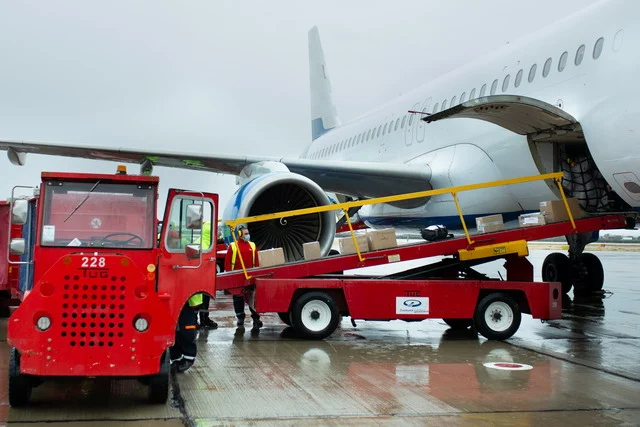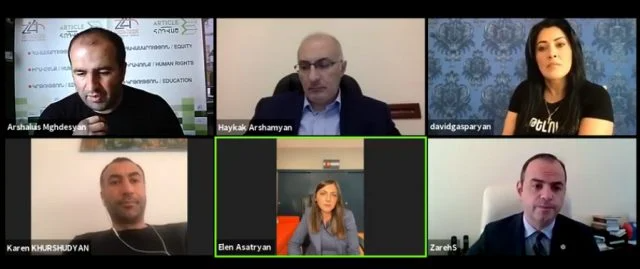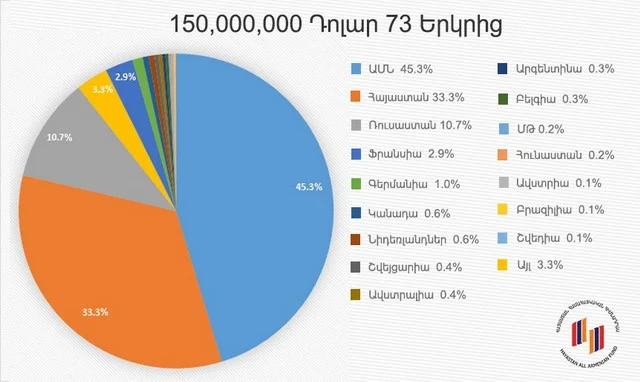“Unprecedented mobilization has taken place in the Diaspora,” the High Commissioner for Diaspora Affairs, Zareh Sinanyan, said during an online seminar with the Article 3 club.
He said that a lot of activities are taking place with fundraisers, humanitarian aid, and spreading awareness. Zareh Sinanyan explained, “The diaspora is also working towards gathering funds. They are sending funds to the Hayastan All Armenian Fund. Taking into account past experiences where financial means were scattered in one direction or another due to various personal initiatives, as was the case during the April War of 2016, now all funds are being directed to the Armenia Fund. The other direction in which we are working is through gathering humanitarian aid and sending it to Armenia. We do not have access to the sea, and we are surrounded by enemies. This was a serious challenge logistically, but it seems that we have overcome it for the most part. We have established an entire system. We have found ways in which we can have humanitarian aid sent to Armenia. The third direction in which we are working is through spreading awareness.”
Zareh Sinanyan said that the office is also coordinating bringing volunteers to Armenia. He said, “I am not only referring to people going to fight. There are many doctors who have come and are coming to Armenia to help people injured during the war and fighting COVID-19.”
Read also
The executive director of the Hayastan All Armenian Fund, Haykak Arshamyan, said that at least half a million people donated money to the fund. He explained, “Armenians from over 70 countries participated in this fundraiser. This has never happened before. The funds gathered in one month are the equivalent of at least ten or 15 telethons. But we are experiencing a humanitarian crisis. We need funds, and we ask that everyone continue to show their support to the Motherland since this is an issue of our survival.”
Upon the observation that there is concern about problems arising when humanitarian aid is brought from customs, Zareh Sinanyan said, “There is such a problem, but there are many layers to this problem. In the beginning, people did not see any lists. Every agency had its own list, and Artsakh had its own. People were sending anything they could think of. Some even sent food from the USA. They were sending it in any way they could without sorting it. This causes problems in Armenia when we try to understand whom the products are for. They open and sort it at the airport to understand where they need to send the items. There are also logistical issues. If we begin to sort and list the assistance in a more organized manner, then these obstacles and slow processes would change.”
Zareh Sinanyan also spoke about the accusations against Russian-Armenians, specifically how there are many Armenians in Russia, but they did not send much money to the Hayastan All Armenian Fund. “The list does not provide a full picture of how much money was gathered from each country. Many people are focusing on the fact that large donations did not come from the Russian-Armenian community. As someone who is well aware of all forms of assistance taking place, I assure you that there is a lot of aid coming from Russia. Although Armenians in Europe have sent over six cargo planes full of aid, as well as trucks, and two planes carrying 65 tons of aid came from the USA, that is very little compared to the aid coming from Russia. I do not want anyone to have the wrong opinion about our compatriots in Russia. They are doing much more than we can say. You will know more after the war. At least two planes come from Russia daily, in addition to the trucks, which are constantly coming to Armenia.”
Tatev Harutyunyan




























































